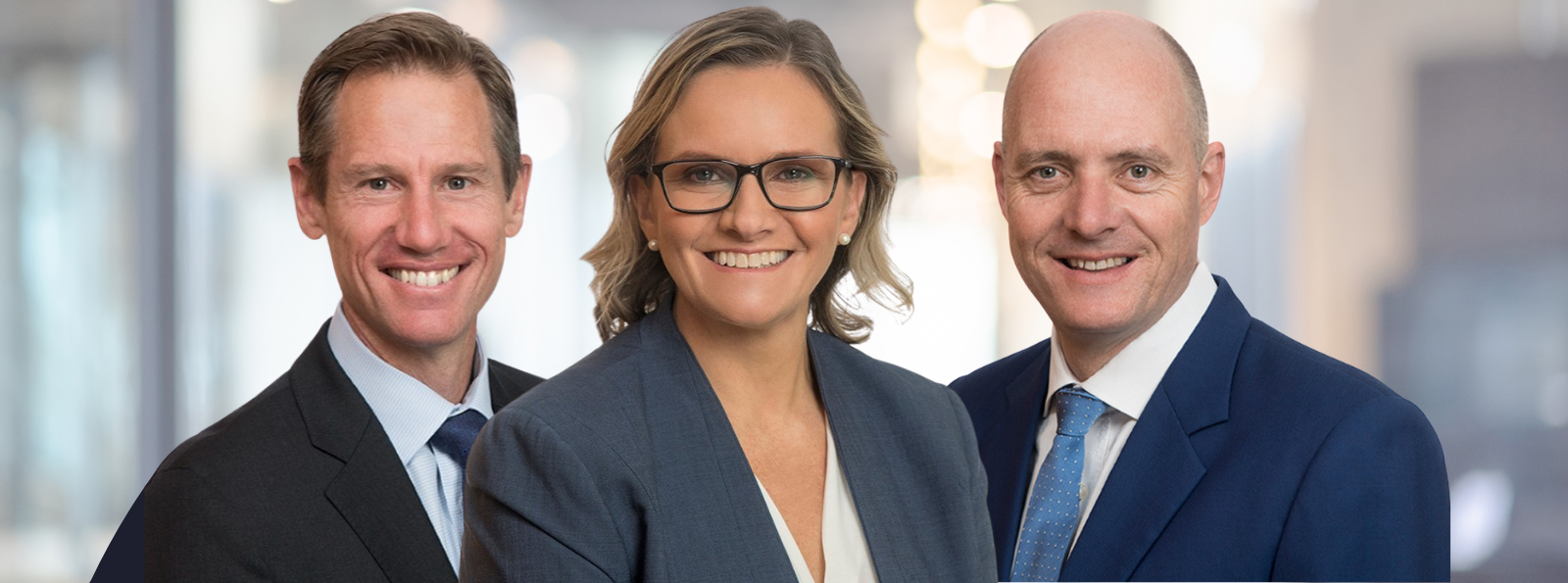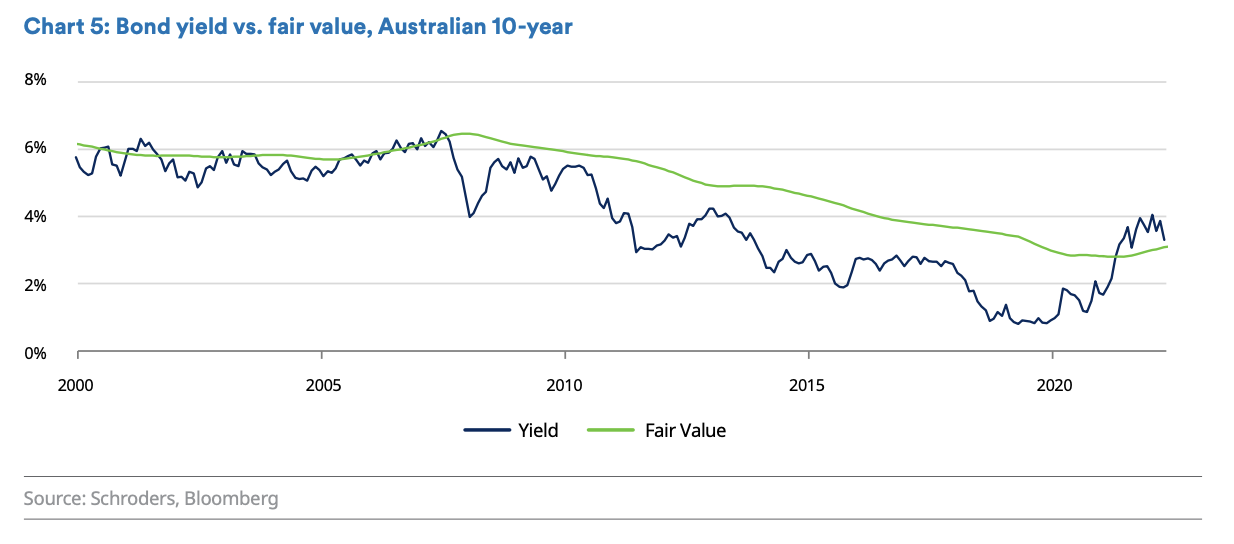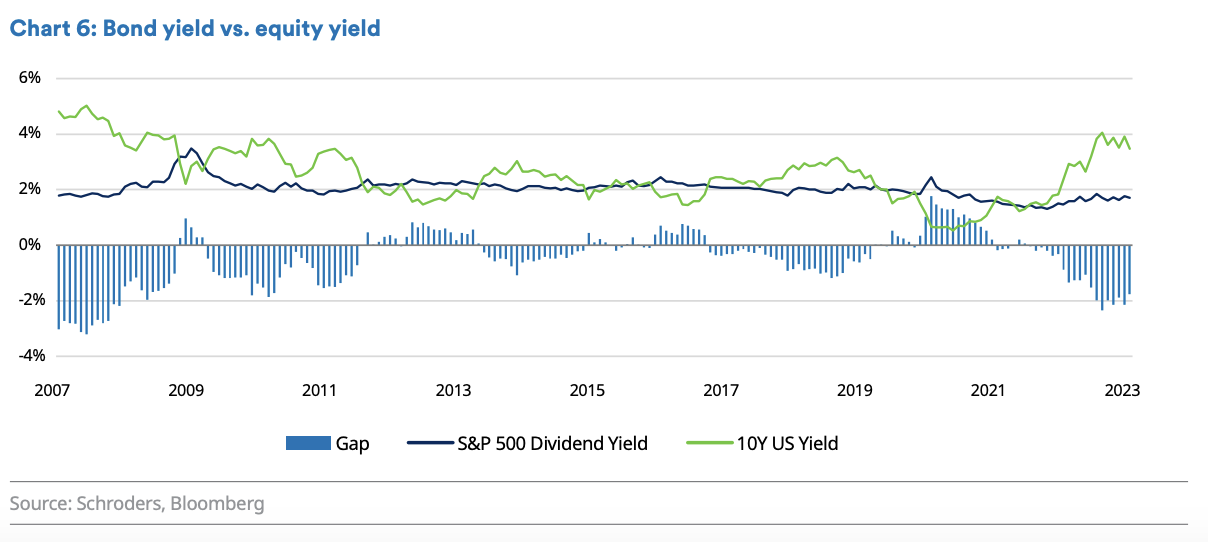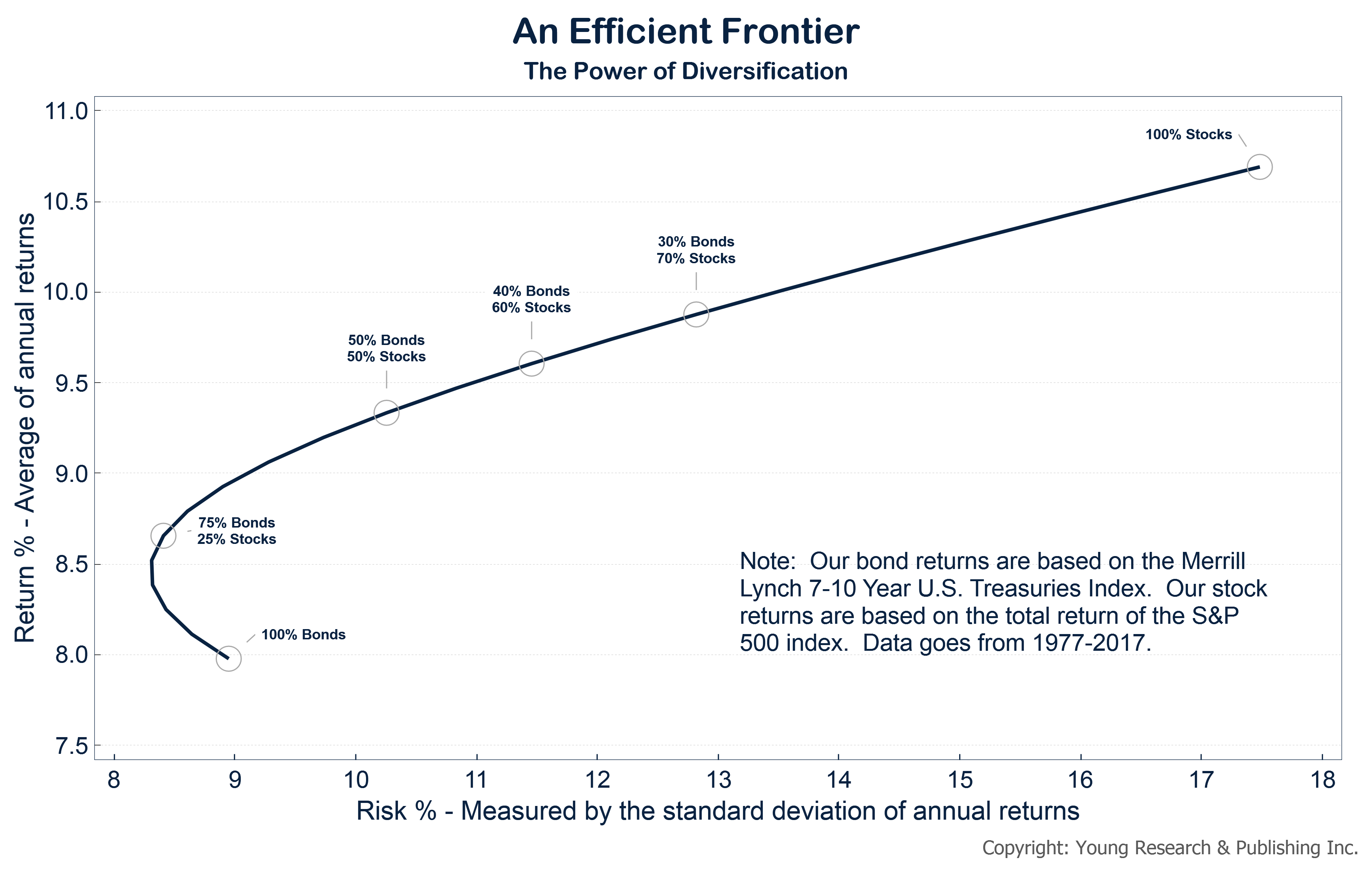This asset is "priced for perfection" - and Schroders is shorting it
The Greek philosopher Heraclitus is quoted as having said "There is nothing permanent except change". In the financial markets, we can often think of this quote in economic regimes.
Throughout the 1970s, oil embargoes and high budget deficits created a prolonged era of stagflation.
From the early 1980s to 2008, we had the great moderation which was marked by lower interest rates and a build up of leverage.
When that world burst during the Global Financial Crisis, central banks began flooding economies with cash through low rates and stimulus packages. No one wanted a repeat of 2008 but what the seemingly endless amount of quantitative easing did was violently shake inflation from its long slumber.
Now, it appears markets are entering a new regime and economic order. But what will that "next" economy look like - and what assets will perform well in that environment?
In this wire, we'll attempt to answer those questions with the help of Schroders' Australian fixed income team - Kellie Wood, Mihkel Kase, and Stuart Dear.

Goodbye cruel world, hello new world
2022 was a moment of reckoning for the global bond market - and the repricing shock definitely left investors licking their wounds. But the Schroders team says yields are finally in their "oasis" period - that is, the outlook for returns is significantly more appealing.
"Today, fixed income is by far the standout asset class. Income has never looked this good," Wood said.
The team argues the cycle is turning for bonds, with government bonds presenting good value. These assets are cheap on the basis of two common valuation methods:
1) The Australian bond yield is currently above fair value

2) Bond yields are tracking above the dividend yields in equities - and the gap is widening.

High-quality corporate bonds are also "cheap" when looked at from a credit spread perspective.
In both the Schroders Fixed Income and Schroders Absolute Return Fixed Income funds, there is a large long allocation toward high-quality Australian government and investment-grade corporate debt.
"We think there's enough in the price. Spreads are wide enough to compensate any small increase in default risk," Dear said.
There is also a large allocation towards assets with interest rate risk (i.e. short duration assets) given central banks have tightened aggressively.
The short position: Global high yield credit
Both funds also hold a lot of cash, with the Fixed Income fund containing more government securities than its Absolute Return counterpart. But both funds also have a short position in a certain part of the credit market.
Despite attracting potential returns of up to 9%, both funds have small short positions in the global high yield market. Dear argues this is because that market's valuations are still too optimistic given the looming economic risks such as corporate defaults.
"The cycle risks for riskier credit are greater. We are expecting defaults and downgrades to pick up and that should see spreads widen," he said.
"It's an asset priced for perfection," he added.
The likely scenarios for the next economy
The Schroders team is betting on inflation remaining structurally higher and economic growth remaining soft in the next economic cycle. A combination of deglobalisation, intense spending on security (cyber, food, energy, etc), and the costs of the climate transition are all likely to put structural pressure on inflation. As a consequence, higher inflation is a likely sign of higher volatility in financial markets as well.
During the QE-era, several themes pervaded through all asset allocation. Among them:
- Higher returns could be made for investing in higher risk (i.e. a negative correlation between bonds and equities)
- Sovereign bonds provided capital appreciation but no yield
- Quality didn't matter as much in credit, or as Kase put it, you could buy the "junkiest junk" because default risk was so low and credit could be attained for such a cheap amount.
- "Cash is trash"
All that is now changing.
"When we think about the next economy, the efficient frontier really starts to shift," Wood said.
"You do not need to take on a lot more risk to generate higher return but it is an environment where the bond-equity correlation could become more unstable moving between deeply negative to quite positive," she added.
The efficient frontier is an academic concept, suggesting the kind of portfolios which offer the highest expected return if given a defined level of risk. Essentially, the further away a portfolio is from the efficient frontier, the more risk you could be taking on for less return. Risk-oriented investors generally err on the right side of the frontier while conservative investors err on the left side of the frontier.
What Wood is essentially saying is that the frontier will likely ebb and flow, making active investing that much more important.

Kase backs Wood up, suggesting the next economy will require investors to stay in high-quality assets.
"Quality is really going to matter. You need to have a bias towards high-quality businesses," he said.
"Cash is gone from cash is trash and now, it plays a key role in portfolios. It provides liquidity and optionality which is key," he added.
1 topic
3 contributors mentioned

